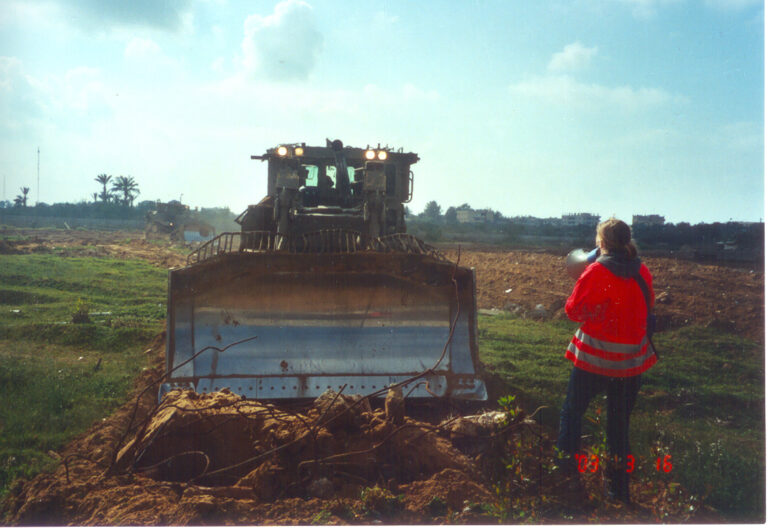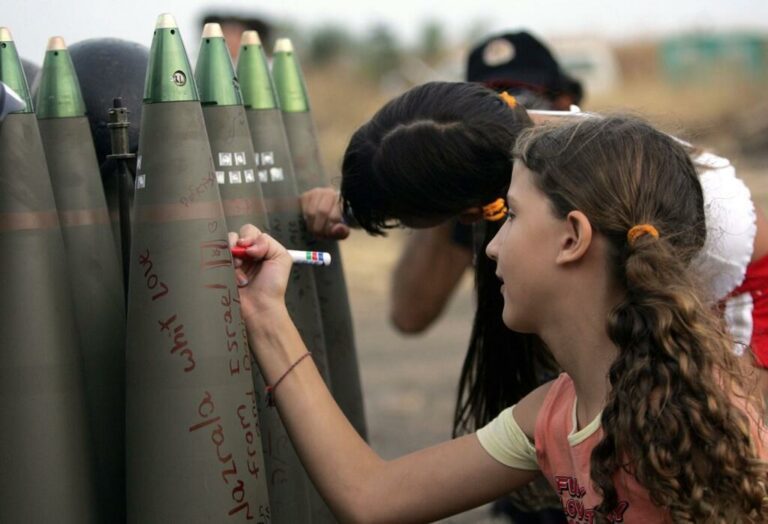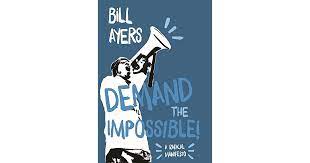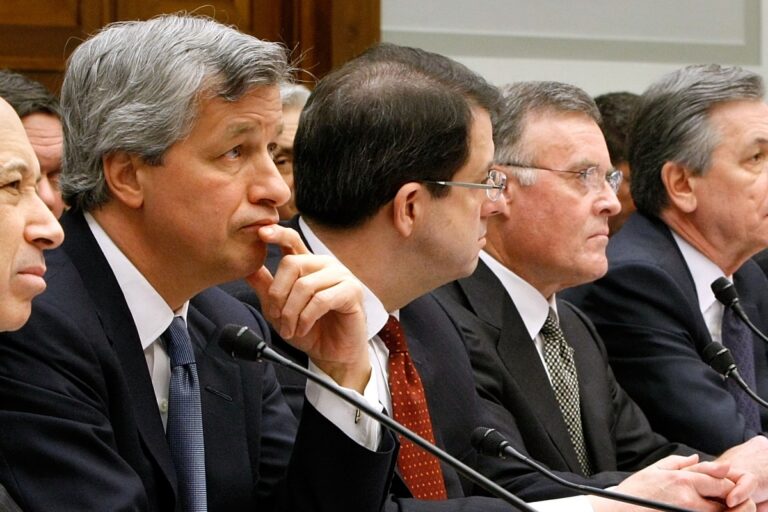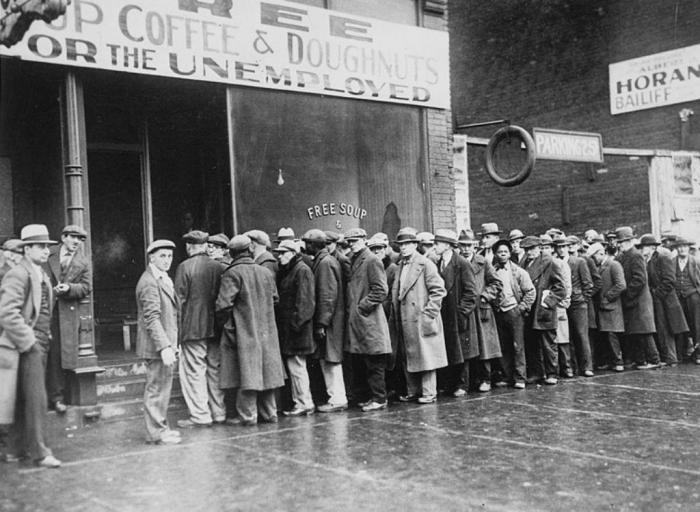Former FBI agent Coleen Rowley discusses still unanswered questions about the lead-up to 9/11. This interview was produced October 24, 2009, with Paul Jay on Reality Asserts Itself.
STORY TRANSCRIPT
PAUL JAY, SENIOR EDITOR, TRNN: Welcome back to The Real News Network. We’re talking to Coleen Rowley, who worked in the FBI office in Minneapolis which found a man who had gone to a flight school and plunked down a lot of cash learning how to—if I remember correctly—. Hello, Colleen. Let me say hello. If I remember correctly, didn’t he just want to learn how to take off, and he wasn’t all that interested in learning how to land?
COLEEN ROWLEY, FORMER FBI AGENT AND WHISTLEBLOWER: Yeah. And, actually, he claimed, “I want to learn to fly as an ego-boosting reason.” I mean, he said, “I just want to boost my ego.” I mean, the flight instructors had a lot of reasons to be suspicious.
JAY: So, as we left off in the first segment, we were talking about different elements of this that kind of just don’t make any sense. And one of them you’ve said to me off camera just before we started was in fact George Tenet knew quite well about the Minneapolis investigation pre-9/11. So what’s that story?
ROWLEY: Well, the story is, on the day of 9/11, he’s having breakfast with, I think, somebody else, and somebody runs in to tell him that a plane is flying into the World Trade Center. And the first thing out of George Tenet’s mouth is, “I wonder if it’s that guy in Minnesota.” So that was a clue that he had been briefed. But nobody really asked him, and he didn’t volunteer that he had been briefed about this until he was in front of the 9/11 Commission and asked point-blank: did he know about the [Zacarias] Moussaoui case? And he was briefed in a really short, two-frame PowerPoint on, I think, August 23 or 24, something entitled “Fundamentalist Learns to Fly”. And then, of course, the 9/11 Commission asked him, “Why didn’t you do anything with this?” And he says something about it’s not my job, I assumed the FBI would handle it.
JAY: This is all incredulous. It’s just very—no normal rational person could look at any one of these things—even if there’s a lot of intelligence coming in, it doesn’t seem to explain it.
ROWLEY: Well, after 911 they said this is the benefit of hindsight. And it was one of the things I actually wrote about in my memo, about hindsight, you know, that, sure, that’s true, things are a lot clearer when you already know—.
JAY: And let me just explain, ’cause I don’t think we did in the first segment. So, after 9/11, you were very concerned about how the information generated had been buried, and you wrote a memo that was quite dramatic. So tell us a little bit about the memo.
ROWLEY: Well, immediately after 9/11 we had all kinds of official denials. Condoleezza Rice said that no one would have had any clue that someone would fly a plane into a building. You know. Another denial was there’s no probable cause to have investigated before 9/11. So this happened for about eight and a half months. There were leaks, finally, about the Moussaoui case that there was a terrorist suspect in custody before 9/11, and things began to leak out in May 2002. It took all that time. So I got a chance to tell what I knew to the joint intelligence committee inquiry, and when that happened, I thought, you know, this is unbelievable. Just like you said—how incredulous. So I couldn’t sleep for a couple of nights and I wrote this. So it turned out to be about a 12-page memo of the various things that I just knew in the Minneapolis office, so that there was probable cause to have gotten this warrant, and that this is improper, for instance, to water down an affidavit, this should never have happened, you know, this should be fixed immediately. In fact, I was one of the very first people to put “war on terror” in quotes in that May 2002 memo, because I knew that that reaction, calling it a “war on terror” and launching that, was a very improper—if you knew why 9/11 had had the lapses in how it had happened, well, launching a war made no sense. It made no sense whatsoever.
JAY: So now we’re, you know, eight years later, almost nine years later, I guess, and looking back, reflecting on who you were then and how you see the world now, how has it changed the way you see the role of America in the world?
ROWLEY: Well, you know, the cliché is 9/11 changed everything, and it did change everything. It shouldn’t have, but it did. It was almost like internally in the FBI a pendulum swing like this, 180 degrees. I had been teaching FBI agents the Fourth Amendment law of search and seizure and Fifth Amendment right against self-incrimination, right to attorney. Those things over time just kind of went up in smoke, and to the point where, for instance, the law of interrogation, you’ve allowed something totally illegal, which is torture. So if you had spent 13 years of your life teaching the finer points of Miranda and then all of a sudden now see that the headquarters is allowing for people to be tortured and torture-lite and all these things [in the] course of interrogations, you can’t just remain silent. And a lot of these overreactions were really the fault of not knowing why it had happened. The lack of truth, it created a vacuum for a good while. The first inquiries did not even get released for a couple of years. And even though they’re maybe not incomplete [sic], at least there’s something. But it was two years. So that vacuum of not knowing how and why this had occurred allowed for, then, people to fill the vacuum with, well, we’ve got to do this, we’ve got to launch the war, we’ve got to take the gloves off, we’ve got to go to the dark side, we have to collect more information on Americans through their credit records, their bank records. We have to maybe monitor all Americans’ telephone calls and computer. All of those really improper remedies that were suggested after 9/11 were done because there was no truth known of why and how this had happened.
JAY: Well, are you satisfied we have the truth now? Does the official version of events as the 9/11 Commission tells it—are you satisfied with that version?
ROWLEY: Well, I think it’s incomplete. Chapter 8 of the 9/11 Commission [Report] is “The System Was Blinking Red” or something like that, and it’s not based on anything the 9/11 Commission did. They did no new investigation of the intelligence. They relied on the joint intelligence committee report, the inspector general report that I, my memo, gave rise to, and I think a little bit the judiciary committee’s report. And for as far as it goes, I think it’s pretty accurate. They did identify some of flaws and lapses. The FBI, for instance, failed to understand that the one Chechen group was a foreign power. The FBI legal unit had failed to read the affidavit. So as far as it went in identifying some lapses, it’s pretty accurate, but it probably did not go far enough. And, again, because the 9/11 Commission—people forget they were under enormous time constraints and resource constraints.
JAY: Well, even the fact there was a 9/11 commission was—the administration, the Bush administration, did kicking and screaming under the pressure of the families.
ROWLEY: Right. And the only information, in some cases, that McCain and—was it [John] Lehman?—that they were able to get was through pressure. They had to put, actually, public pressure through the media to even get Bush and Cheney to come and testify. Eleanor Hill, who had led the staff of the joint intelligence committee, was unable to do so. She bitterly complained because she was never able to go to the highest levels. You know, she was—you know, at the bottom level, she could interview people like Coleen Rowley, but—.
JAY: Now, you’re aware that a lot of the people that are questioning 9/11—and everyone knows there’s this big spectrum, from one end being, you know, this is a whole inside job theory and the buildings were pre-wired to explode and things, to the other end of the spectrum being, I guess, usually described as people who think that they knew it was coming and didn’t do anything about it. One way or the other, there are millions of Americans, it seems, that do not believe the official version of events. To be personal about it, the point that I can’t get past in believing the official version is starting at the very beginning. I don’t understand how a cabinet-level Richard Clarke antiterrorism person, when all of your intelligence agencies are telling you how serious a threat this is, he gets demoted, and then you’re telling us Ashcroft apparently tells the acting head of the FBI, “We’re not very interested in terrorism now.” And of course people that know the background of the questioning of this know this document called Project for New American Century, which you must know, where it says we need to project a new way of projecting US military power now that we’re the single superpower, but of course we’ll never get the American people onside without a Pearl Harbor event. So many people have connected that document, which Rumsfeld signs and Cheney signs—. Do you question in your own mind’s eye, your own heart of heart, whether this was incompetence or kind of “We don’t want to know because we have some agenda here”?
ROWLEY: Well, I’ve signed a petition and actually lobbied a little bit for a fuller investigation on behalf of the families, on behalf of the first responders, who I think as victims are entitled to the full truth. And I actually testified to the judiciary that was my main reason for coming forth with that memo is because the victims of these crimes will never rest easy until they know the full truth. I think the murkiest areas that still remain, again, because the 9/11 Commission was under enormous constraints—. There’s a new book out by one of the people that was on the 9/11 Commission, saying that this is very incomplete and we weren’t given the truth. I think the murkiest areas are the NORAD callout, because the timeframes that people testified to do not mesh with each other. They’re all in conflict. And I think the intelligence that was known ahead of time, which, of course, somebody in my position would not have been privy to—. I don’t think the full truth has come out about the Saudi connection, of course, the blackout there. So, again, we’ve launched, the government has launched remedies to reduce terrorism, and under the Bush administration they were counterproductive and greatly increased terrorism. They did not serve the purpose whatsoever. It’s very late in the game to be doing a new investigation of this, but better late than never. So I do think that we need more truth on what happened.
JAY: The whole issue of accountability of the Bush administration, there’s been a debate about whether there should be some kind of accountability on torture. Almost no debate, which to my mind is the most important issue is no accountability to launching a war on an illegal basis. Under any form of international law, if Iraq was not an imminent threat to the United States, then invading it is the worst violation of international law there is. But there’s been no discussion of accountability on that for Bush-Cheney, but not even a whisper of the issue of accountability on—even if it’s negligence, it’s the grossest negligence one could possibly imagine. And if it’s not negligence—and I don’t see how anyone at this point can actually answer that one way or the other. But the Democrats and the Obama administration, they don’t even raise any of this, especially the 9/11 issue, even for conversation. Why, do you think?
ROWLEY: Well, it’s painful. My memo, I think, probably got attention because I was pointing out—I was one of the first people to point out some really painful, harsh truths. And, you know, it’s always easier to go forward and not deal with something that’s happened in the past. The problem with that, and I think Walter Mondale said something really—you know, he really encapsulated the problem well recently when he said torture is like a loaded pistol that’s been put on the kitchen table for anyone down the road to come along, pick up, and pull the trigger. And the problem with not having accountability, even for launching a war of aggression, certainly for the use of torture, is that it set a precedent. And if the people are not—at least admit it was wrong and go on to have lucrative careers, everybody out there watches that. You know, Condoleezza Rice right now is invited to speak in the Twin Cities. They’re selling a table at this event for $12,500. So what is the message that everybody that goes to listen to Condoleezza Rice now is getting? That her ordering or her role in ordering torture was something good, you know, because she’s been reimbursed for it. She’s got a—. You know. And I think, now, future, you think about a young person that’s 22, 23, in college now, going through this, what is the lessons they’re going to take out of this? That’s the reason we have to have something at least like a new Church Committee. And you have got to find out the truth of the matter in order to get past it. You can’t turn the page without having read it.
JAY: There has to be an opening of the books of the Bush administration on every level.
ROWLEY: Right.
JAY: Okay. We’ll talk more. Please join us for the next segment of our interview with Coleen Rowley.


